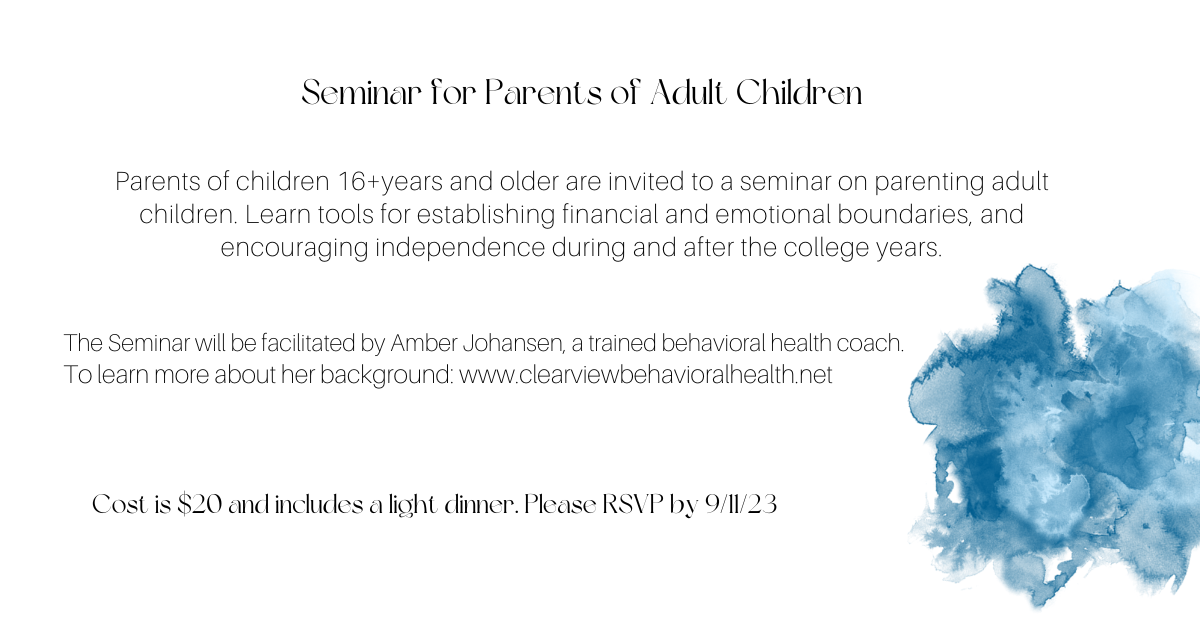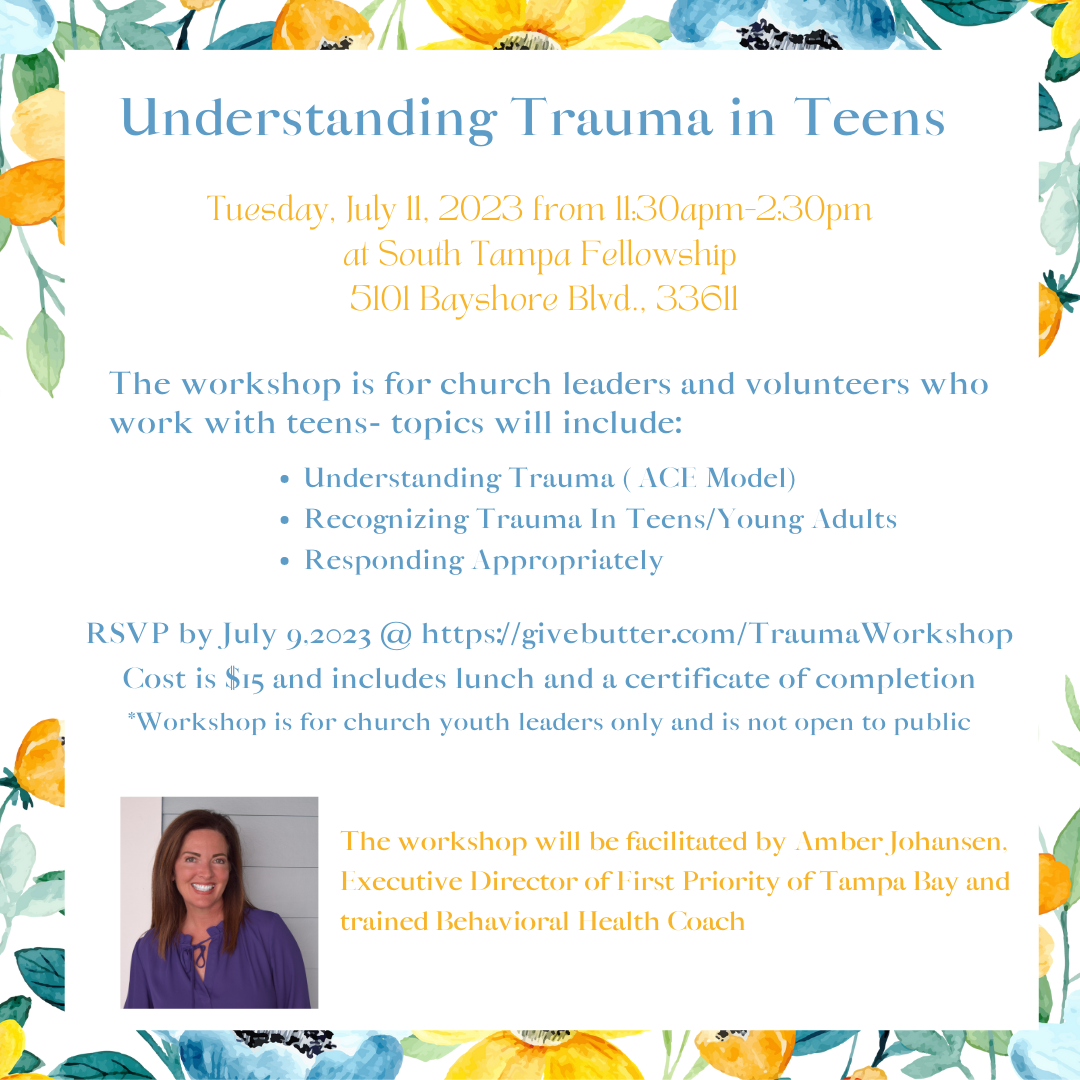
behavioral health Resources
Additional mental healt resources
Andrea Fisher, Psychiatric Nurse Practitioner, Love Life Psychiatry, 813-776-0010 (office number)
Provides medication management and treatment for mental health conditions, attention deficit hyperactivity disorder, behavioral disturbances, and generalized anxiety disorders. She provides in-person and virtual services. Providing treatment for children ages and up through the senior population.
Michelle Horton-Gall, Christian Counselor, https://mhgcounseling.com/
Provides faith based biblical counselor in-person and virtual services.
Video of Boundary Setting Seminar
Please click the link to view the video of Amber speaking at South Tampa Fellowship on boundary setting for parents of adult children: https://www.youtube.com/watch?v=B9u61lIfsrs
What are relational parameters and why do they matter?
We are all in relationships with others- family, spouse, co-workers, etc.- and defining parameters in these relationships is often difficult. This is especially true if you struggle with co-dependency or unhealthy patterns of behavior. When considering parameters, we must factor in communication, expectations, interactions, and cultural differences that shape the dynamics of these relationships. With this in mind, here is a boundary assessment tool for understanding the different boundary types:
*This is not a diagnostic or treatment tool, nor is it comprehensive.
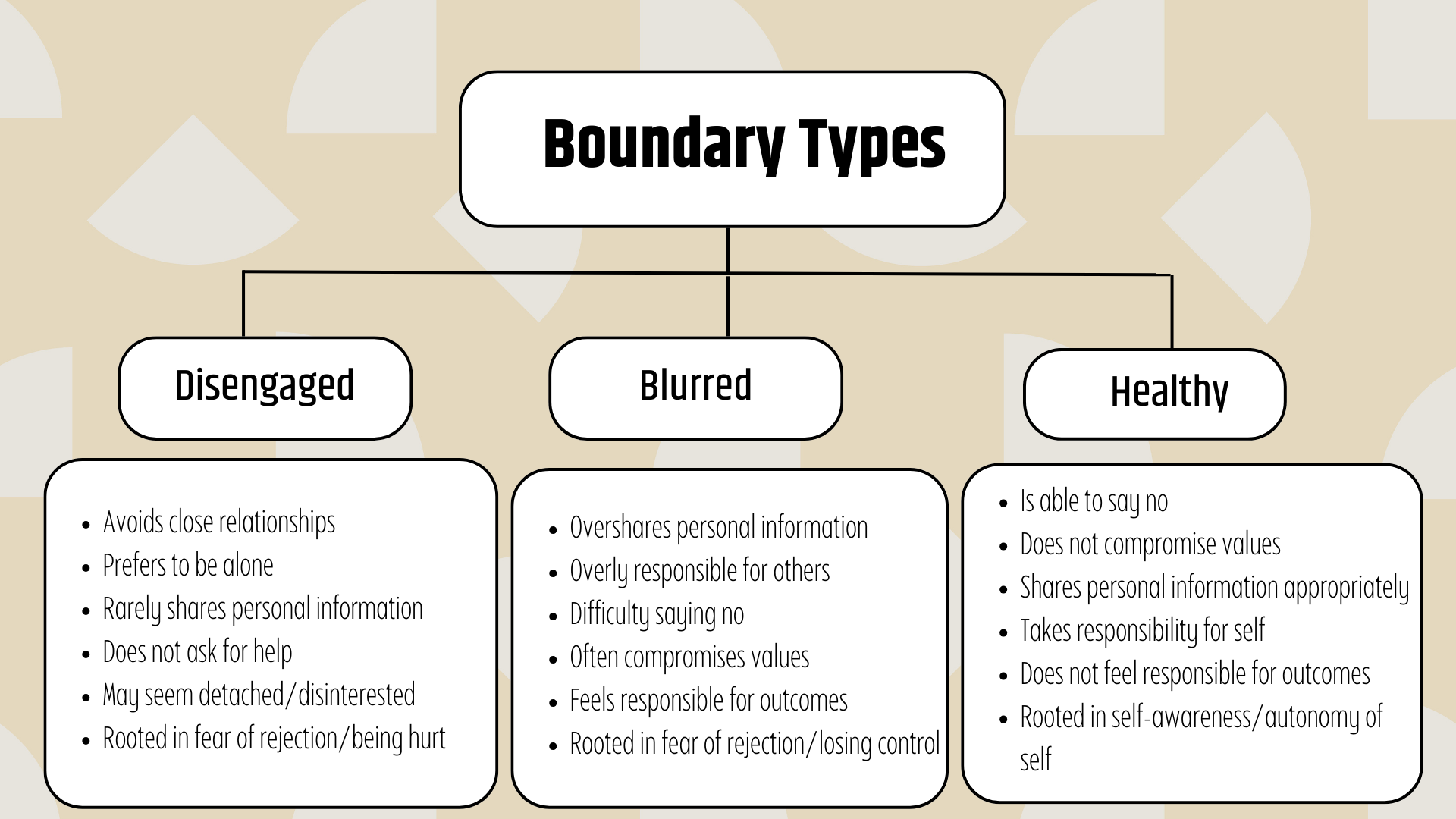
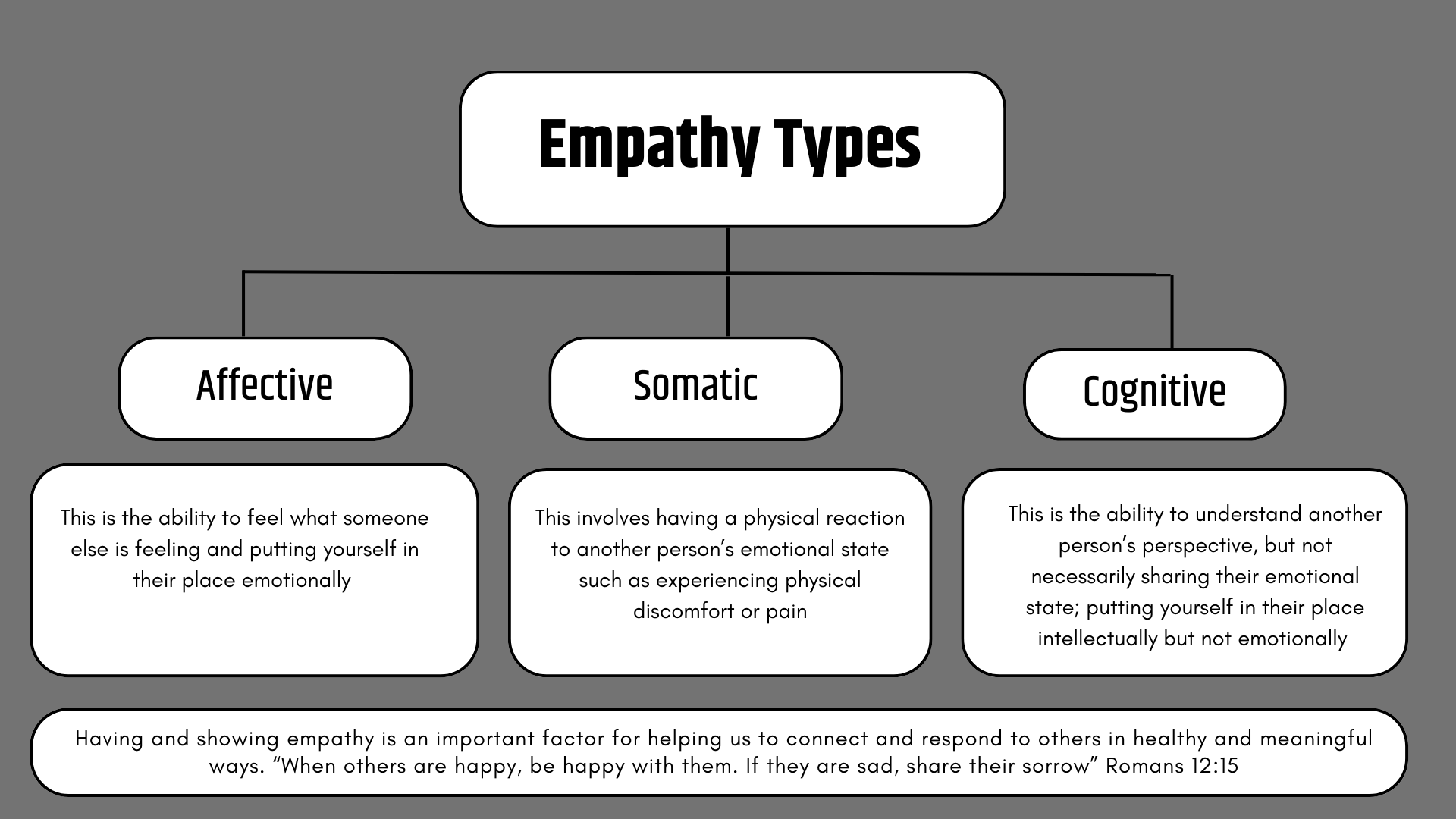
How to connect with your teen
This five minute video, featuring Josh Shipp, is worth your time. In it, Josh explains teen behavior and offers suggestions for how to better connect with your teen.
Understanding the effects of pornogpraphy on youth
The following links provide research on pornography consumption in youth and the linkage to human trafficking. Please be advised that when you click on the link in blue, your browser will open to a website- Fight the New Drug or Porn Hub's Year in Review or Common Sense Media- for added safety, it is recommended that you copy and paste the link into your browser.
*Trigger warning: some of the content is graphic and disturbing
Report from January 2023 on porn consumption among youth: https://www.commonsensemedia.org/sites/default/files/research/report/2022-teens-and-pornography-final-web.pdf
Porn impact on teens: https://fightthenewdrug.org/issues-porn-culture-fuels-in-high-schools/
Stats on porn consumption in youth: https://fightthenewdrug.org/10-porn-stats-that-will-blow-your-mind/
How porn impacts sexual harassment among teens: https://fightthenewdrug.org/porn-fuels-sexual-harassment/
The link between porn and trafficking: https://fightthenewdrug.org/basic-facts-about-sex-trafficking/
Data on porn searches: https://www.pornhub.com/insights/2022-year-in-review
Data on students watching porn in school: https://fightthenewdrug.org/how-many-students-watch-porn-at-school/
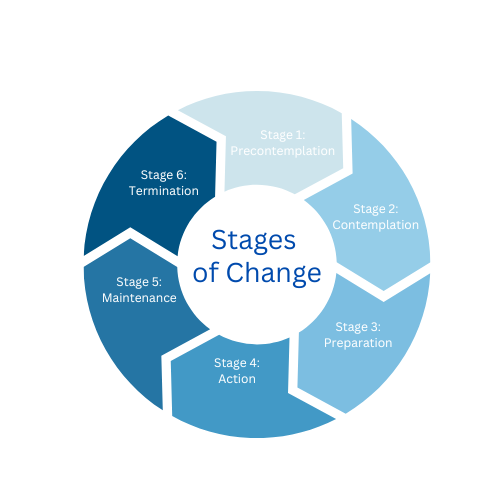
TRANSTHEORETICAL MODEL-
STAGES OF CHANGE
In this model, there are 6 stages of change and people may exit or re-enter at any stage- relapse is expected and part of the change process:
Precontemplation- unaware of problematic behavior
Contemplation- recognize that a behavior is problematic
Preparation-change is desired and action is intended
Action- changed behavior (for less than 6 months)
Maintenance- has changed behavior for long term (more than 6 months)
Termination- problematic behavior is no longer desired
what's holding you back?
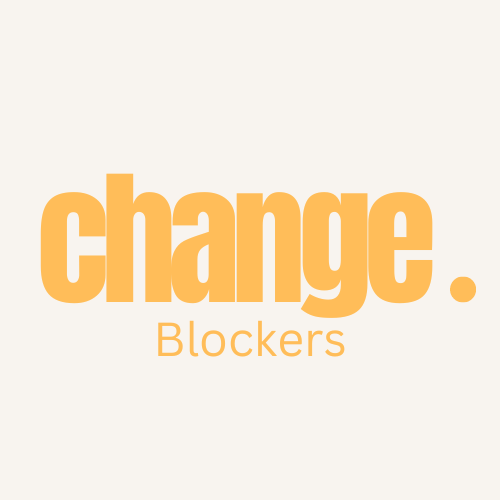
There are typically 7 common patterns of behaviors and thinking that limit or block change:
Self-perceived limitations: not good enough, smart enough, strong enough, etc.
Difficulty making decisions: analysis paralysis, insecurity
Unable to take action: procrastination
Fear of failure, falling short
Self-sabotage: poor organization or planning (also similar to reasons 3 & 4)
Negative self-talk or limited thinking: similar to 1st reason
Overwhelming feelings: anxiety, stress, obsessive thinking
considering the "what if"?
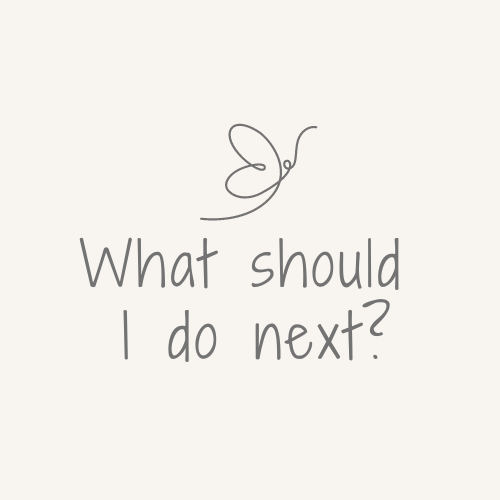
If you have a habit, pattern of behavior, or situation in your life that you want to change, this is a beneficial exercise to consider:
What is the habit, pattern of behavior, or situation (identify the issue)?
What about this issue would you like to change?
What would your life be like if you did change?
What are your options for changing?
What is the risk involved in the change and who will it effect?
What is holding you back from changing?
What if you changed one aspect of the habit, pattern, or situation? What would it be?
Upcoming Events
